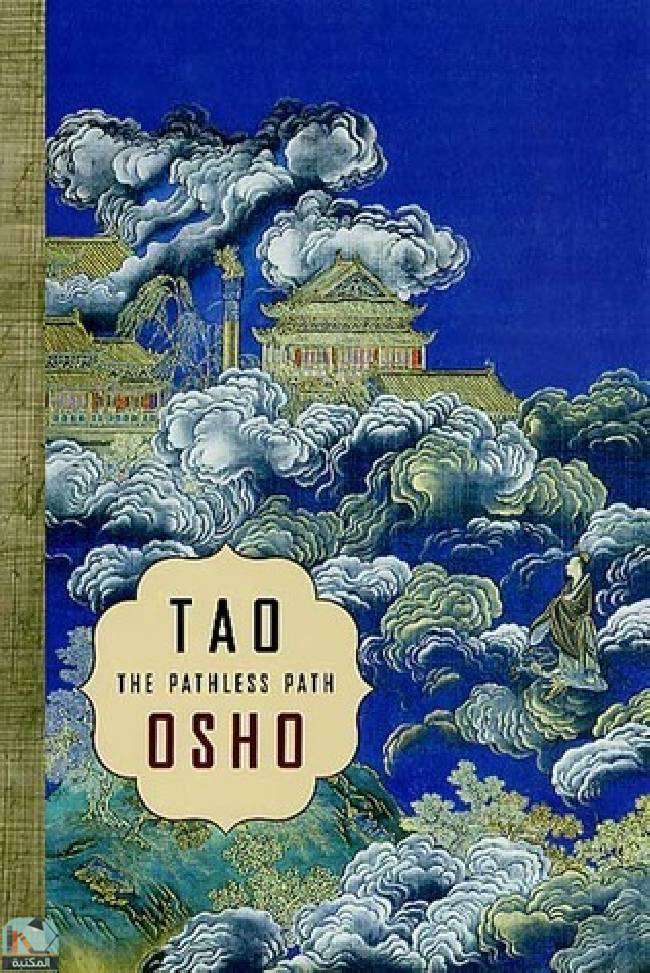📘 ❞ Tao: The Pathless Path ❝ كتاب ــ أوشو اصدار 2002
فكر وثقافة - 📖 كتاب ❞ Tao: The Pathless Path ❝ ــ أوشو 📖
█ _ أوشو 2002 حصريا كتاب ❞ Tao: The Pathless Path ❝ عن جميع الحقوق محفوظة للمؤلف 2025 Path: In , Osho, one of the greatest spiritual teachers twentieth century, comments on five parables from Leih Tzu, bringing a fresh and contemporary interpretation to ancient wisdom Tao Tzu was well known Taoist master in fourth century B C his sly critiques Confucius provide abundant opportunities for reader explore contrasts between rational irrational, male female, structured spontaneous “Who Is Really Happy” uses discovery human skull roadside probe into question immortality how misery arises out existence ego “A Man Who Knows How Console Himself” looks beneath apparent cheerfulness wandering monk asks if there is really happiness that endures through life’s ups downs “No Regrets” parable about difference knowledge gathered outside “knowing” within Rest Living” dialogue despondent seeker reveal limits philosophy crippling consequences living sake some future goal “Best Be Still, Best Empty” discusses path will, via affirmitiva Christianity, Judaism, Islam, versus mystic, negativa Buddha Lao also features Q&A section addresses understanding applies everyday life concrete, practical terms Osho challenges readers examine break free conditioned belief systems prejudices limit their capacity enjoy all its richness He has been described by Sunday Times London as “1000 Makers 20th Century” Mid Day (India) ten people―along with Gandhi, Nehru, Buddha―who have changed destiny India Since death 1990, influence teachings continues expand, reaching seekers ages virtually every country world فكر وثقافة مجاناً PDF اونلاين الثقافة تعني صقل النفس والمنطق والفطانة حيث أن المثقف يقوم نفسه بتعلم أمور جديدة كما هو حال القلم عندما يتم بريه هذا القسم يشمل العديدة من الكتب المتميزة الفكر والثقافة تتعدّد المعاني التي ترمي إليها اللغة العربية فهي ترجِع أصلها إلى الفعل الثلاثي ثقُفَ الذي يعني الذكاء والفطنة وسرعة التعلم والحذق والتهذيب وتسوية الشيء وإقامة اعوجاجه والعلم والفنون والتعليم والمعارف
- مساهمة من: محمد عبيد
( الأربعاء 15 نوفمبر 2023 ( 9:21 مساءً )) - تبليغ عن سوء استخدام

In The Pathless Path , Osho, one of the greatest spiritual teachers of the twentieth century, comments on five parables from the Leih Tzu, bringing a fresh and contemporary interpretation to the ancient wisdom of Tao. Leih Tzu was a well-known Taoist master in the fourth century B.C., and his sly critiques of a Confucius provide abundant opportunities for the reader to explore the contrasts between the rational and irrational, the male and female, the structured and the spontaneous.
“Who Is Really Happy” uses the discovery of a human skull on the roadside to probe into the question of immortality and how misery arises out of the existence of the ego. “A Man Who Knows How to Console Himself” looks beneath the apparent cheerfulness of a wandering monk and asks if there is really a happiness that endures through life’s ups and downs. “No Regrets” is a parable about the difference between the knowledge that is gathered from the outside and the “knowing” that arises from within.
“No Rest for the Living” uses a dialogue between a despondent seeker and his master to reveal the limits of philosophy and the crippling consequences of living for the sake of some future goal. “Best Be Still, Best Be Empty” discusses the difference between the path of the will, the via affirmitiva of Christianity, Judaism, and Islam, versus the path of the mystic, the via negativa of Buddha and Lao Tzu. The Pathless Path also features a Q&A section that addresses how Taoist understanding applies to everyday life in concrete, practical terms.
Osho challenges readers to examine and break free of the conditioned belief systems and prejudices that limit their capacity to enjoy life in all its richness. He has been described by the Sunday Times of London as one of the “1000 Makers of the 20th Century” and by Sunday Mid-Day (India) as one of the ten people―along with Gandhi, Nehru, and Buddha―who have changed the destiny of India. Since his death in 1990, the influence of his teachings continues to expand, reaching seekers of all ages in virtually every country of the world.
#4K
0 مشاهدة هذا اليوم#10K
4 مشاهدة هذا الشهر#122K
362 إجمالي المشاهدات- 🎁 كن أول كاتب اقتباس في هذه الصفحة واحصل على هديّة 15 من النقاط فوراً 🎁
-
كتب أخرى لـ أوشو:





